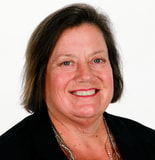The Diet Waiver Alternative: How to Advocate for Patients’ Rights
Presented by Jeanette E. Benigas and Pamela A. Smith
12-Month Subscription
Unlimited access to:
- Thousands of CE Courses
- Patient Education
- Home Exercise Program
- And more
This course provides the legal background surrounding patients’ and residents’ rights in directing their own care specifically related to dysphagia and diet consistency recommendations. It includes interviews with individuals who have served as expert witnesses as well as an attorney who specializes in this area of elder care. We discuss the reasons for this problem, how to approach the conversations, examples of positive and negative conversations, documentation suggestions, and the problems associated with waivers. We provide a template for use in planning team meetings where these topics can be discussed with families. The course is intended for any professionals involved in eating and swallowing management or oversight.
Meet your instructors

Jeanette E. Benigas
Jeanette E. Benigas is the owner of Safe Swallowing Diagnostics, a mobile FEES company serving eastern Ohio and western Pennsylvania. Her extensive clinical experience has included work with adults in acute care, inpatient rehabilitation, post-acute rehabilitation, long-term care, home health, and outpatient settings.…

Pamela A. Smith
Pamela A. Smith has been a speech-language pathologist for 35 years with experience in acute care, acute rehab, skilled nursing, and outpatient settings. Dr. Smith completed her undergraduate education at Kutztown University (Pennsylvania) with a degree in special education – speech/language pathology, her master’s degree at…
Chapters & learning objectives

1. The Right to Decide
We discuss the Patient Self-Determination Act, what it means for patients and residents as they direct their own care, and the requirements of care providers. Discussion includes the possible penalties if we do not follow the law.

2. Safe Swallowing and Pneumonia
We describe the science behind the development of pneumonia. This provides the clinician with necessary knowledge to participate in discussions with the medical team about the reality of the relationship between aspiration and potential for negative consequences.

3. Linking Legal and Clinical, Part 1
Individuals who have served as expert witnesses describe their experiences. We learn about cases that have come to litigation, the task of being an expert witness, and observations these individuals made about case management and documentation.

4. Linking Legal and Clinical, Part 2
We interview Michael Hill, an elder attorney, who shares his observations and insights on cases that come to litigation. He describes the importance of following the process of informed consent to demonstrate that patients/residents have been able to participate in their own care. We also discuss the problems with waivers and the necessity of documentation of conversations.

5. From Information to Conversation
Learn how to have nonbiased conversations in team meetings so that patients/residents and their families can receive the information they need to make informed decisions. We provide simulations of both biased and nonbiased conversations.

6. Administrative Challenges
It can be difficult for a clinician to navigate change in the facility if administrative staff are reluctant or fearful. We discuss the importance of having open conversations, addressing the priorities of the specific listener, recognizing the source of their reluctance, and ensuring that the clinician approaches the conversation with full preparation of theory and patient-specific information.
More courses in this series

Mild Cognitive Impairment: Diagnosis to Management
Jeanette E. Benigas

The Diet Waiver Alternative: How to Advocate for Patients’ Rights
Jeanette E. Benigas and Pamela A. Smith

Infusing Executive Functioning Into Rehabilitation Plans of Care
Pamela A. Smith

The Other Dysphagia: Preoral Dysphagia Evaluation and Treatment
Jeanette E. Benigas

Deciphering the 3Ds: Depression, Delirium, and Dementia
Jeanette E. Benigas